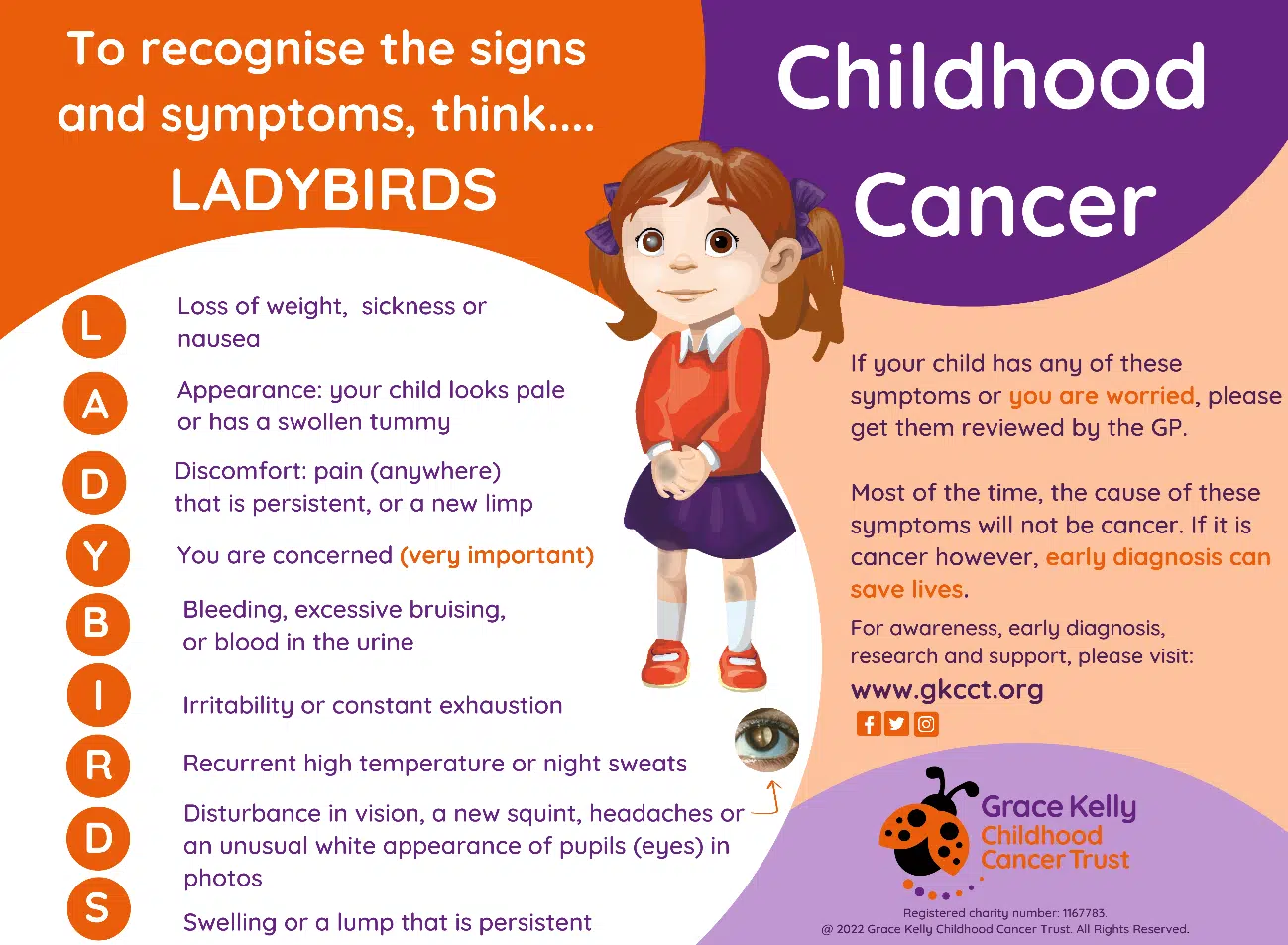5th September 2022
During Childhood Cancer Awareness Month, we are delighted to share this Voices blog by Dr Jen Kelly, CEO of the Grace Kelly Childhood Cancer Trust and General Practitioner.
September marks Childhood Cancer Awareness Month (#CCAM), a time when we come together to raise awareness of childhood cancer, one of the most common causes of death of children in the UK.
Childhood cancer is, unfortunately, not as rare as many of us may think. Each year in the UK, there are over 1,800 children diagnosed with cancer. This works out as 1 child in every 450 will receive a diagnosis of cancer by their 15th birthday.
49% of cases of childhood cancer occur in babies and children aged 0-4 years, so it is of vital importance that health visitors are aware of what to look out for.
Early diagnosis saves lives.
What should we be looking for when seeing families?
- It can be difficult to know what you should be looking for, but our awareness card above is useful in directing your thoughts. Of particular note is when babies or young children have symptoms that are either different to normal childhood ailments or they have symptoms that are not resolving or improving in the way that you would expect a normal childhood illness to do so.
- We all know that babies and children can catch several coughs and colds when starting nursery and school. This is normal. However, it is unusual for babies and children to have colds for months on end without any relief (most have a few days of relief in between most colds).
Which children should be ringing our alarm bells?
- Babies and children that are progressively losing weight (or not gaining weight adequately and crossing centile lines) or those who have unusually swollen tummies. Some of these signs and symptoms can be due to allergies, reflux and other childhood conditions, but childhood cancer needs to remain in the back of our mind and these children need to be examined by their GP to rule out other causes. Unusual bleeding, including blood in nappies or if the child appears very pale.
- If a child (who has until recently been meeting developmental milestones) starts to lose skills or develops a new squint.
It is normal for parents to worry if their child has symptoms of any illness. Remember: The symptoms on the awareness card are not usually cancer. But, as cancer symptoms can be very similar to those of other childhood illnesses it is important that they are checked by a doctor to exclude cancer. This is so important.
Above all, providing families with accurate information is very important. Our awareness cards are free to order and can be given out to families to put in their infant red books to keep them safe. Some areas have the cards already included, but other regions do not. If you would like to order free paper copies to give out in your region or on visits, please see below:
The childhood cancer awareness cards are similar to meningitis awareness cards. They are designed so as not to cause upset, merely to ensure parents know the signs to look for. By sharing the awareness cards, you will boost awareness and aid earlier detection which can help to save lives.
Remember, if a parent is very worried about their child (especially if this is not their normal consulting behaviour), it is important to take these worries seriously and suggest that they take their child to be reviewed by a doctor.



